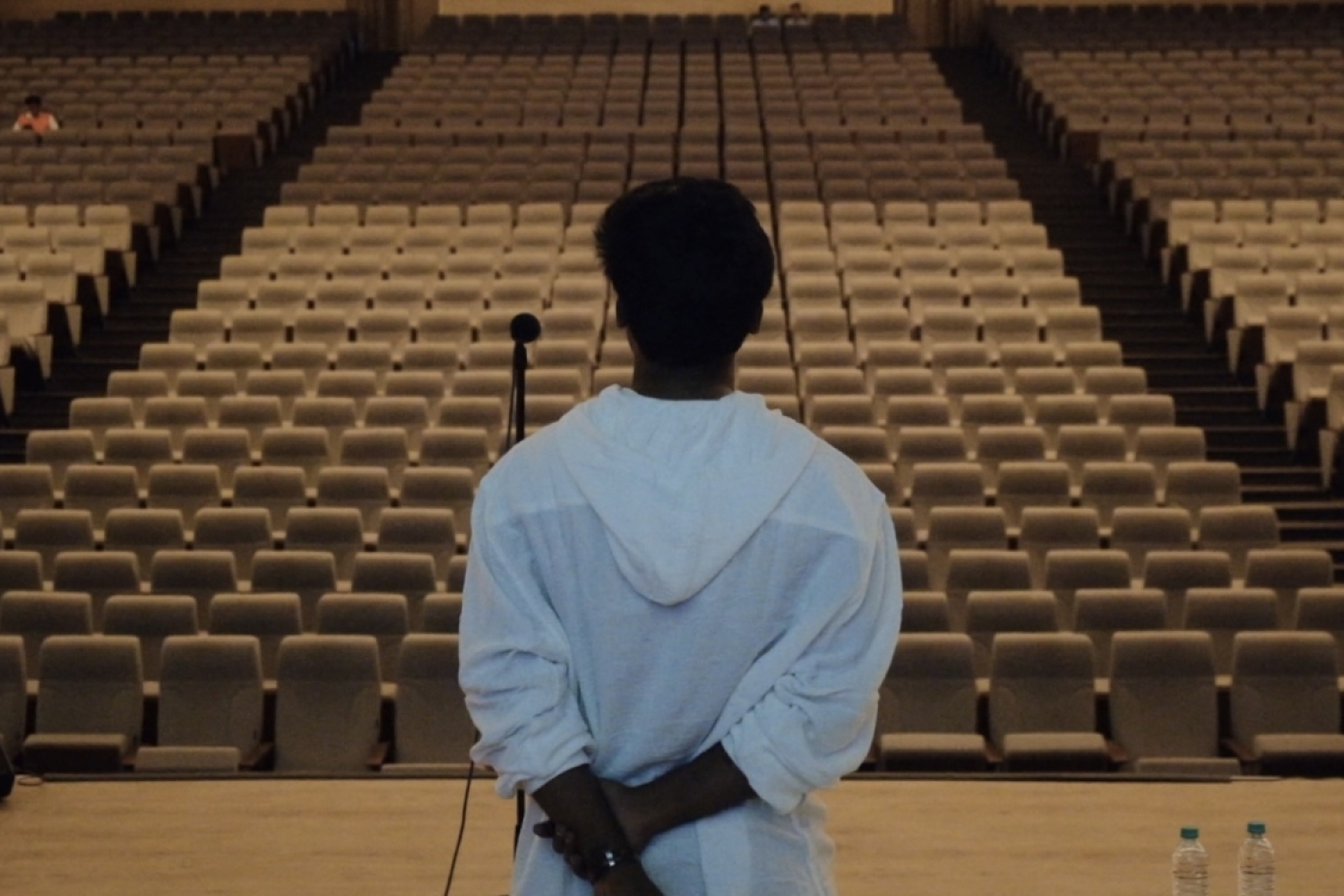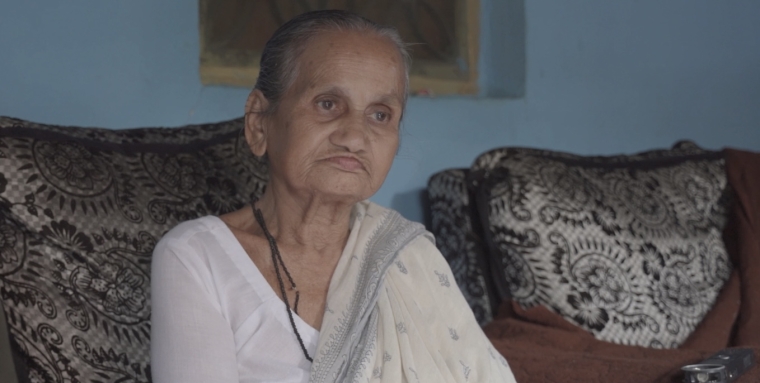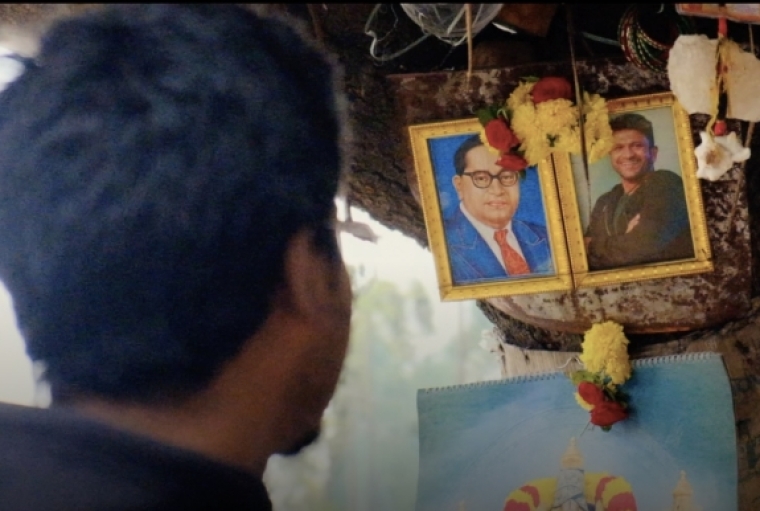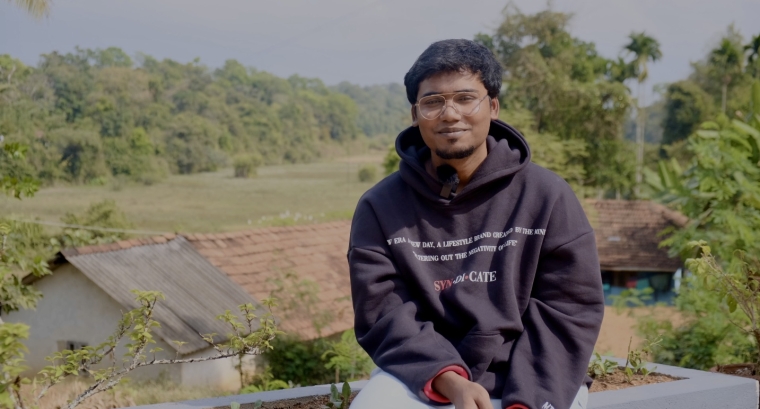

To document one's own life through a film is a powerfull act of self-exploration and representation in public. Stand-up comedian Manjeet Sarkar not only represents his life in the comedy landscape of India but highlights the many lives of Dalits across the country that are under constant oprression. Sarkar transforms the power of his microphone into a compelling film titled Untouchable: Laughing Out Caste. In this documentary, Sarkar delves into his Dalit identity and its profound influence on his journey as a comedian. Renowned for his comedy of discomfort and incisive commentary on caste oppression, Sarkar’s film fearlessly navigates through societal taboos and challenges norms.
In this conversation, we talk to Manjeet Sarkar on his motivations behind creating a documentary about his life, the challenges he faced and his creative process.
When was the first time you realised you wanted to be a stand-up comic?
After the 4G revolution in India, I had free internet and would consume content rather than go to college. In 2016, after I discovered Dave Chappelle on YouTube, I fell in love with this art form. I thought I should try once when I got the courage to do so, and so I finally tried in 2017 at an open mic in Bhubaneshwar. And I was horrible. Even though I bombed so bad, I had never felt that good.
How did you get the idea of turning your comedy tour and life into a film?
I am a big fan of documentary films in general, and have watched a lot of US documentaries about stand-up to learn about comedy and the culture. I have also wanted to be a filmmaker since I developed a love for cinema and storytelling. Two things led to this idea of turning my tour and life into a film. I have been aware that in India, there is no proper documentary about stand-up comedy despite it being a leading artform in the country. Being a comedian from a community with almost no representation, I thought it was an important journey to share.

What were some of the challenges you faced in entering the closed arena of comedy?
I was studying in a tier III city when I discovered comedy. There was no stand-up comedy shows or comedy mics in the entire state, except for one open mic in Bhubaneswar (250+ kms away) that happened only once a month. There were language barriers too. I didn’t speak either Hindi or English at the time, the two mainstream languages in which comedy used to happen. I had to learn how to speak Hindi before hitting more open mics. And now, I’ve been learning and slowly performing more in English. Also, to pursue comedy, I had to lie to my family, move to Mumbai and stay in very harsh conditions while constantly spending money I didn’t have. A comedian has to perform regularly for free at open mics for years to build material and a show. On top of needing to move to India’s most expensive city, open mic venues in Mumbai would ask newbies to pay to perform.

How did comedy change your life and how important it is for bringing a change in society?
Before comedy, I had an inferiority complex. Whenever I saw people laughing, I thought I was the punchline. Because of comedy, I got so much confidence because now I make people laugh and they are the punchlines for me. Comedy gave me a life where I get paid to do what I love the most, getting in front of an audience with a microphone and touring the world. I have and would do this even if it meant I was broke and hungry.
My lens through which I see the world evolved because of the perspective I gained being on a stage. If I was not a comedian, I am not the kind of person who would embrace discipline or sacrifice.
The role of a comedian is to make people laugh and think at the same time. We bring forward new perspectives to old situations. As Dave Chappele said, there is no opinion in this world that hasn’t been discussed by comedians in a green room or on stage. Bringing a change in society is the responsibility of every human being.
From performing stand-ups to making a documentary, what has been your creative process?
Stand-up comedy and filmmaking both involve conveying a story with an insight. The major difference is that stand-up comedy is a full soul artform where the comedian writes, performs and produces. This means as a comic, I am solely responsible for what I create.
Filmmaking, on the other hand, even if one person is at the centre of the work, is a team effort. While I wrote, creatively directed, and produced this film, many people have played a critical role in making it what it is. My team, especially my codirector Mike Noone, have made it their own. The movie being about stand-up comedy gave me an upper hand because this is my comfort zone.
Throughout my tour, a lot of people asked me why none of my sets are on YouTube as is the case with all comedians who have a special. I wanted to bring something different than the usual YouTube video because the virtual experience is different from the live one. Both need to be engaging and both cannot be the same.

The film addresses the comedy of discomfort in your stand-ups, tell us more about it.
Comedians tell jokes that are mostly based on their own experiences. So do I. And my experiences are not comfortable for the audiences who can afford to watch stand-up comedy. It makes me happy to see how people who live such comfortable lives get uncomfortable just listening to some jokes. It’s fun to see how jokes built on facts and real experiences make people uncomfortable because then it’s not the joke that is causing the discomfort, it’s our society. I started talking to people off stage about topics that I talk about on stage, to explore how the inside of the joke lands when the stage is gone. Most of the things I talk about are not funny or polite conversation off stage. I make them funny. That’s the art. That’s the message that I am trying to achieve with this movie.
Words Paridhi Badgotri
Date 05.03.2024